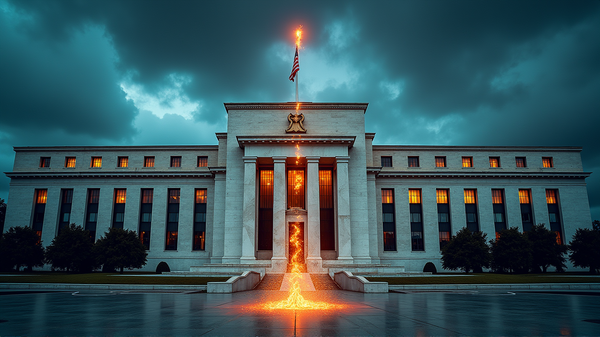Crypto Bill: A Recipe for Disaster or Necessary Innovation?
In a swirling maelstrom of opinions, Massachusetts Secretary of the Commonwealth William Galvin has thrown down the gauntlet against a proposed crypto market structure bill that many fear could open the floodgates to fraud. This burgeoning legislation, designed to regulate the digital assets market, hangs by a thread in the gaze of skeptical regulators and lawmakers.
The Rallying Cry of Regulators
In a stinging letter to U.S. Senators, Galvin did not mince words. He warned that passing the Responsible Financial Innovation Act of 2025 could spell disaster for countless American savers. Galvin argued that the bill’s expansive reach would extend beyond cryptocurrencies, threatening the integrity of various financial assets and potentially making the regulators’ jobs more precarious.
A Legislative Tug-of-War
Introduced by U.S. Senator Cynthia Lummis, the legislation finds itself at a political crossroads, with a Republican-controlled Congress eyeing its enactment closely. Galvin’s contention isn’t isolated. WealthManagement.com emphasizes that a cadre of academic leaders and financial experts has united to criticize the bill’s potential to weaken fraud detection and protection mechanisms.
The Heart of the Controversy
Critics have sharpened their knives for parts of the bill like Section 105, fearing it would redefine how investment contracts are perceived, which could hobble regulators’ ability to sniff out innovative but dubious financial schemes. “It’s playing with fire,” admonished Ben Edwards, a law professor, whose concerns resonate with many. His apprehension isn’t unwarranted, considering the financial scams targeting vulnerable investors as much as they do seasoned ones.
States’ Battle for Their Regulatory Rights
With a clear, authoritative tone, Alabama Securities Commission Director Amanda Senn echoed the call for state-level oversight, highlighting how these are not just numbers on a page, but real people potentially affected. The fear isn’t purely speculative—with the sheer number of fraud schemes, leaving states out of enforcement activities could result in numerous unscrutinized wrongdoings.
The Nauances of Innovation and Regulation
The entire affair raises a critical question: Where does innovation end and unbridled risk begin? While advocates champion the bill as a necessary leap towards modernization and clarity in digital asset regulation, skeptics view it as an undercut to long-standing protective measures. The ultimate decision will weigh heavily on the balance between encouraging financial innovation and safeguarding investors from emerging threats.
Conclusion
As the debate steams ahead, one thing remains clear: this legislative pivot could mean the difference between fortified defenses against fraud and a free-for-all that could leave investors vulnerable and regulators scrambling to catch up. According to WealthManagement.com, the coming months could be decisive in shaping the future landscape of digital asset regulation in the United States.




